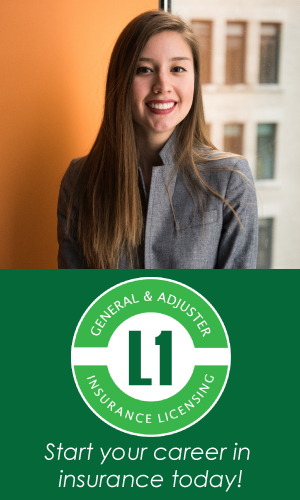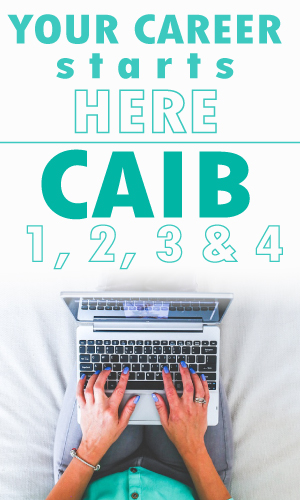Most of our insurance education focuses on improving product knowledge and developing our sales and service skills. And there’s nothing wrong with that.
However, more emphasis has been placed on discussing the ethical decisions that brokers have to make daily in their dealings with other brokerage staff, their clients and the insurance companies they represent.
Ethics is all about doing the right thing in a particular situation. As insurance brokers, our clients, insurers and the public would expect us to do nothing less.
When you hear the word “ethics” what, if anything, comes to mind?
If you said that ethics involves doing the right thing – making the right decision – when in a given situation that offers other possibilities, you are on the right track.
So, it makes sense that if you choose to do the right thing, you are acting ethically and, conversely, if you choose to do the wrong thing, chances are pretty good that you are acting unethically.
There are many definitions of “ethics”, including this one:
“Ethics is about fairness, about deciding what is right or wrong, about defining practices and rules that guide responsible conduct between individuals and groups”. [Canadian Professional Insurance Broker Program, Law & Ethics,]
Fairness is a basic ethical value – if you treat people fairly, you reduce the odds of your behaving unethically.
Here’s another definition of “ethics”:
“Ethics are both personal and societal. They are discovered by reason of introspection, yet they are shaped by our environment and the values of our culture”. [Williams, Bruce D.; Ethics, Profits and Prosperity]
So, what is being said here is that society has a set of expectations as to what constitutes ethical or moral behavior. We need to be discerning enough to know what behaviour is acceptable to society as a whole and what is not.
Example: We work in a society where people pay us for the advice and products we provide to them. They expect us to be fair, honest, trustworthy, and loyal and all the other things they value in their insurance broker. If we breach any of these ethical values, they may well perceive us as being unethical in our dealings with them.
Finally, here’s what one insurance industry expert had to say about the meaning of the term “ethics”:
“Over the years, philosophers and other scholars have made valiant attempts to provide a generally acceptable definition of ethics. Ethics, like professionalism, is very difficult to define in a fundamental way that will win wide acceptance, but we know it when we see it. Several values are widely recognized as the requisite traits of an ethical person, including:
– honesty and integrity;
– respect and caring for others;
– promise keeping, trustworthiness and fairness; and
– personal accountability.
These ethical values can clearly influence the kind of service insurance organizations provide. A motivated work force that is guided by these ethical values will do much to earn the trust of the insurance buying public. Trust is earned over time through dealing honestly and consistently displaying an attitude that reflects both self-respect and respect for others. If service improves, if ethical values rise, the image of insurance will necessarily improve because image reflects reality.” [Baglini, Norman A.; Ph.D.; Quality, Ethics and the Future of Insurance]
The above paragraph talks about applying the list of ethical values (from the previous paragraph) to the workplace – to our business endeavours. We normally refer to these as business ethics. What does that mean? Does it imply that the personal ethical values a person has are different from the ethical values they apply to their business dealings with others? For example, you probably value honesty; fairness; loyalty; respect; personal accountability; etc. in your personal relationships. Does that change when you do business with others? Not likely. So, business ethics is essentially the application of the personal ethical values you have to business situations.
What the Experts say: While knowing ethical behaviour when we see it is all fine and well, all organizations need to establish a formal ethics program to ensure that all staff know how to make ethical decisions when dealing with their clients.
Making the Right Ethical Decisions, is an online e-Learning course that looks at the following topics as they relate to “Ethics and the Insurance Professional”, specifically:
- Defining “Ethics”
- Establishing Ethical Standards – Sources of Influence
- Basic Ethical Values and What They Really Mean
- The Insurance Broker’s Dilemma
- What a Formal Ethics Program Will Do For Your Brokerage
This courses is provincially accredited and satisfies the new RIBO Ethics CE requirement for 2019.
All individual RIBO licensees, including Principal Brokers, Deputy Principal Brokers and Supervising Brokers must complete 1 hour of approved RIBO Ethics CE by September 30, 2019.
This online ethical decisions course addresses Broker ethics – doing right as opposed to wrong – and that it is not all black and white.
As a result, we recognize that you may not always agree with our answers for the “ethical or unethical” situations presented in this online course. However, in any event, the important thing is that we hope we have succeeded in identifying the kinds of situations all brokers have found themselves in and in helping you to clarify your thinking on what the proper ethical response for those situations should be.



